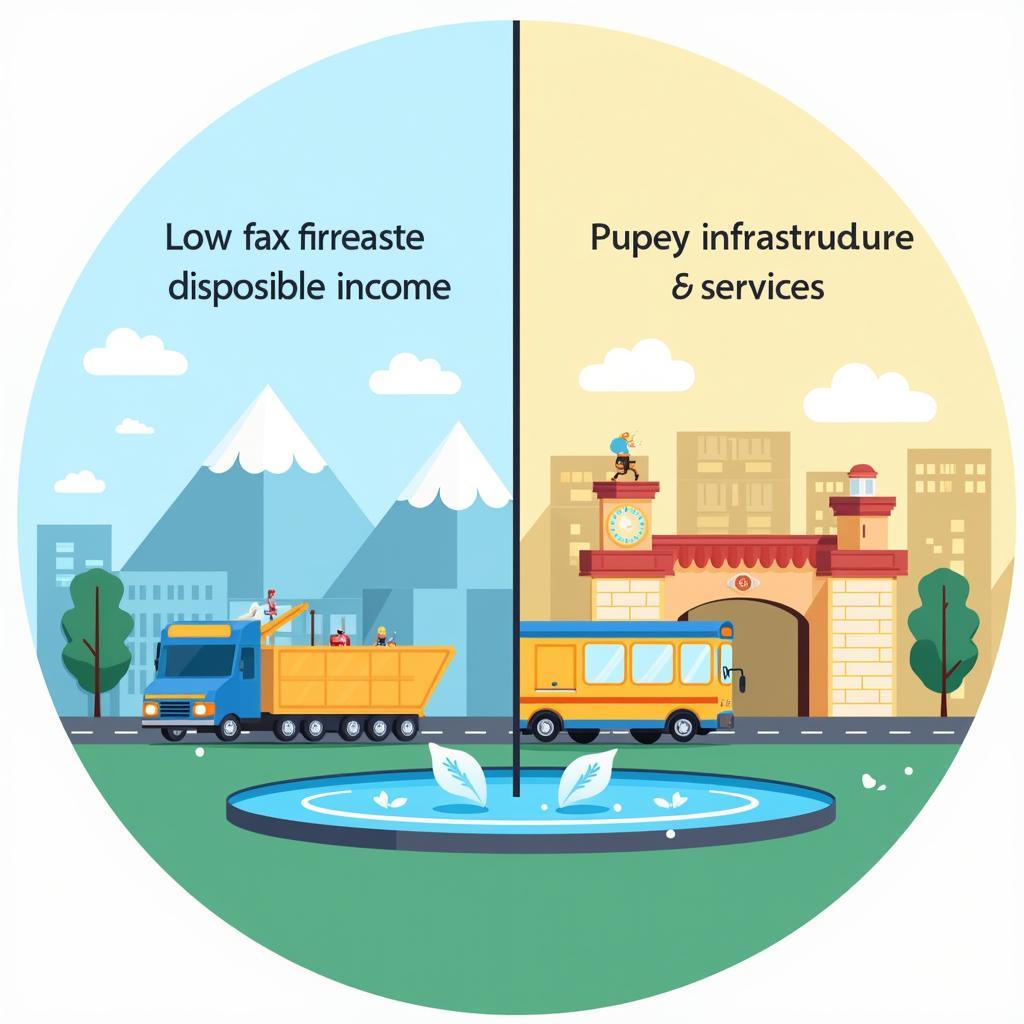Tax-related topics frequently appear in IELTS Writing Task 2, particularly in questions about government policies, economic development, and social welfare. Based on analysis of past exam questions, this theme has appeared in approximately 15% of tests over the last 5 years, making it a crucial area for preparation. Understanding why financial education is crucial for young people can help candidates better approach these questions.
Task Analysis
Some people believe that governments should reduce taxes on income, while others think higher taxation helps economic growth. Discuss both views and give your opinion.
This question requires candidates to:
- Examine opposing views on taxation levels
- Discuss economic implications
- Present and justify a personal stance

Band 8 Sample Essay
The debate over optimal taxation levels remains contentious, with valid arguments on both sides. While tax reduction advocates emphasize individual economic freedom, proponents of higher taxation stress collective benefits. In my view, a balanced approach considering both perspectives is most beneficial.
Those supporting tax cuts argue that lower income taxes increase disposable income, thereby stimulating consumer spending and investment. When individuals retain more earnings, they can invest in how inflation impacts real estate investments, start businesses, or save for future needs. For example, Singapore’s relatively low tax rates have contributed to its position as a global financial hub, attracting international talent and investment.
Conversely, advocates of higher taxation emphasize its role in funding essential public services and infrastructure. They contend that robust tax revenue enables governments to invest in education, healthcare, and public transportation, creating a foundation for sustainable economic growth. Countries like Denmark demonstrate how higher taxation can support comprehensive social services while maintaining economic competitiveness.
In my assessment, the optimal approach lies in implementing a progressive tax system that balances individual economic incentives with collective needs. This could involve moderate rates for middle-income earners while ensuring importance of tax incentives for green businesses and maintaining higher rates for top earners. Such a system would promote both individual prosperity and societal development.
Band 6.5 Sample Essay
Many people have different opinions about taxes. Some think governments should reduce taxes, but others believe higher taxes are better for the economy. I will discuss both sides and give my opinion.
First, people who want lower taxes say it helps people save more money. When people pay less tax, they can buy more things and help businesses grow. Also, it makes people want to work harder because they can keep more of their salary. This is good for the economy because people spend more money.
However, other people think higher taxes are important. They say the government needs money to build roads, schools, and hospitals. If taxes are too low, these things cannot be built or maintained properly. Also, higher taxes can help poor people through welfare programs.
In my opinion, I think medium level taxes are best. Very high taxes might make people unhappy and want to avoid paying. But very low taxes mean the government cannot provide good services. The government should find a balance between these two things.
Scoring Analysis
Band 8 Essay (290 words):
- Task Response: Fully addresses all parts with well-developed arguments
- Coherence: Clear progression with effective paragraphing
- Lexical Resource: Sophisticated vocabulary (“contentious,” “disposable income”)
- Grammar: Complex structures used accurately
Band 6.5 Essay (200 words):
- Task Response: Addresses main points but less developed
- Coherence: Basic organization with some progression
- Lexical Resource: Adequate but simpler vocabulary
- Grammar: Mix of simple and complex structures with some errors
Key Vocabulary
- contentious (adj) /kənˈtenʃəs/ – causing disagreement or controversy
- disposable income (n) /dɪˈspəʊzəbl ˈɪnkʌm/ – money available after taxes
- progressive tax (n) /prəˈɡresɪv tæks/ – tax rate increases with income
- fiscal policy (n) /ˈfɪskəl ˈpɒlɪsi/ – government spending and taxation
- revenue (n) /ˈrevənjuː/ – income from taxes
Consider practicing with similar topics like “tax incentives for environmental protection” or “wealth redistribution through taxation” to strengthen your writing skills.